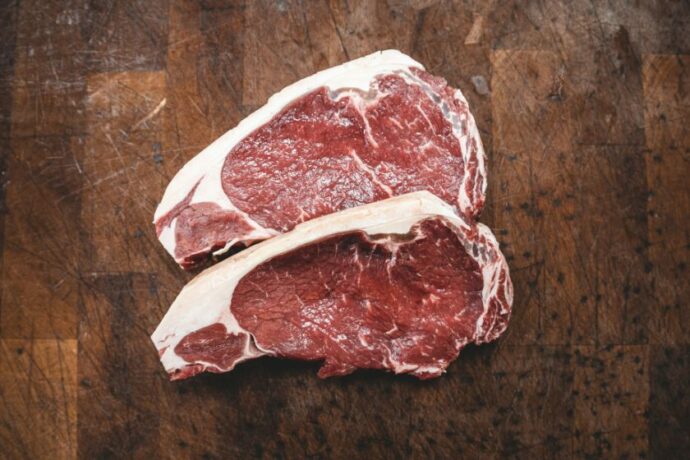
If you’re looking to enhance your dog’s nutrition, bone broth might be the solution you didn’t know you needed. Packed with essential nutrients, it offers several health benefits—from improving digestion to supporting joint health. But is bone broth good for dogs, and how does it compare with other options like beef broth or chicken broth on dog food? Let’s explore the nutritional benefits, usage tips, and considerations when adding broth to your dog’s diet.
What Makes Bone Broth Good for Dogs?
Bone broth is made by simmering bones, connective tissues, and sometimes vegetables for an extended period. This slow-cooking process extracts valuable nutrients like collagen, amino acids, glucosamine, and minerals that can benefit your dog’s health. Here’s why bone broth is a great addition to your dog’s diet:
- Joint Support: The collagen and glucosamine found in bone broth promote healthy joints, which is especially important for aging dogs or breeds prone to joint issues.
- Gut Health: Bone broth contains gelatin, which can help soothe the digestive system and improve gut health by supporting the intestinal lining.
- Immune Boost: The amino acids found in broth, like glycine and proline, aid in reducing inflammation and strengthening the immune system.
- Hydration: Dogs who need encouragement to drink water or have been ill can benefit from the hydrating properties of broth added to their meals.
Benefits of Beef Broth for Dogs
Beef broth is a popular choice among dog owners, offering a rich flavor and high nutritional value. It’s made from simmering beef bones and connective tissues, which release minerals and collagen.
Key Benefits of Beef Broth for Dogs:
- Strong Bone Support: The minerals in beef bones promote skeletal strength.
- Rich in Collagen: Collagen supports skin elasticity and joint function.
- Flavor Enhancer: Picky eaters often find meals more palatable with a little beef broth added.
Tip: Make sure the beef broth you use doesn’t contain onions, garlic, or excessive salt, as these can be harmful to dogs.
Using Chicken Broth on Dog Food
For dogs with a more sensitive stomach, chicken broth on dog food may be the ideal option. Chicken broth tends to be lighter and easier to digest while still providing many of the same benefits as beef or bone broth.
Benefits of Chicken Broth:
- Soothes Digestive Issues: Chicken broth can calm upset stomachs and help with food transitions.
- Boosts Appetite: Adding chicken broth to dry kibble or homemade meals makes food more appealing to dogs with poor appetites.
- Supports Recovery: Sick or recovering dogs benefit from the hydration and easy-to-digest nutrients found in chicken broth.
If you’re adding broth to your dog’s diet, be mindful of the ingredients—avoid store-bought options that contain harmful additives like garlic, onions, or artificial flavors.
How to Add Broth to Dog Food
Incorporating broth into your dog’s meals is simple and effective. Here are a few ways to get started:
- As a Meal Topper: Pour warm broth over dry or wet food to enhance the flavor and texture.
- Frozen Treats: Freeze broth in ice cube trays for a refreshing snack during hot weather.
- Liquid Supplement: Offer broth as a stand-alone treat between meals, especially for hydration purposes.
When introducing broth to your dog’s diet, start with small amounts and monitor their reaction. Some dogs might need time to adjust to new flavors, so gradually increasing the portion is a good strategy.
Can You Use Store-Bought Bone Broth?
While homemade bone broth is generally preferred because you control the ingredients, store-bought broth can also be a convenient option. However, it’s crucial to read labels carefully to avoid additives that could harm your dog.
Look for broths that are:
- Low in Sodium: Excess salt can lead to dehydration or sodium poisoning.
- Free from Onions and Garlic: These ingredients are toxic to dogs.
- Plain and Simple: Choose broths without artificial flavors, preservatives, or added sugars.
Many pet-friendly broths are now available in stores, formulated specifically for dogs with appropriate ingredient standards.
How Often Should You Give Bone Broth to Your Dog?
Bone broth can be offered daily or a few times a week, depending on your dog’s needs and preferences. Dogs with arthritis or joint problems may benefit from more frequent servings, while healthy dogs can enjoy broth occasionally to support hydration and digestion.
For most dogs, 1-2 tablespoons of broth added to meals will be sufficient. Larger breeds may require more, while smaller dogs may need less.
Are There Any Risks of Giving Dogs Too Much Bone Broth?
While bone broth offers many benefits, moderation is key. Too much broth—especially if it’s not made specifically for pets—can lead to unwanted side effects. Here are some potential risks to keep in mind:
- High Sodium Levels: Some store-bought broths contain high amounts of salt, which can be harmful to dogs.
- Upset Stomach: Introducing too much broth too quickly might result in diarrhea or digestive upset.
- Allergies: Watch for signs of food sensitivities, such as itching or gastrointestinal discomfort, particularly if you’re using broth with new ingredients.
If you’re unsure about the appropriate amount, consult your veterinarian to determine the right serving size based on your dog’s size, breed, and health status.
So, is bone broth good for dogs? Absolutely! Bone broth offers numerous benefits, from supporting joint and gut health to enhancing hydration and appetite. Whether you use beef broth for dogs or prefer chicken broth on dog food, adding broth can be an easy and nutritious way to improve your dog’s diet.
At Small Batch Dog Food, we believe in giving dogs the best nutrition possible. Adding broth on dog food is a simple yet effective way to boost your pet’s health. For more expert tips on how to nourish your furry friend, explore our website and discover our expert food recommendations. Your dog deserves the best—let us help you make every meal count!



